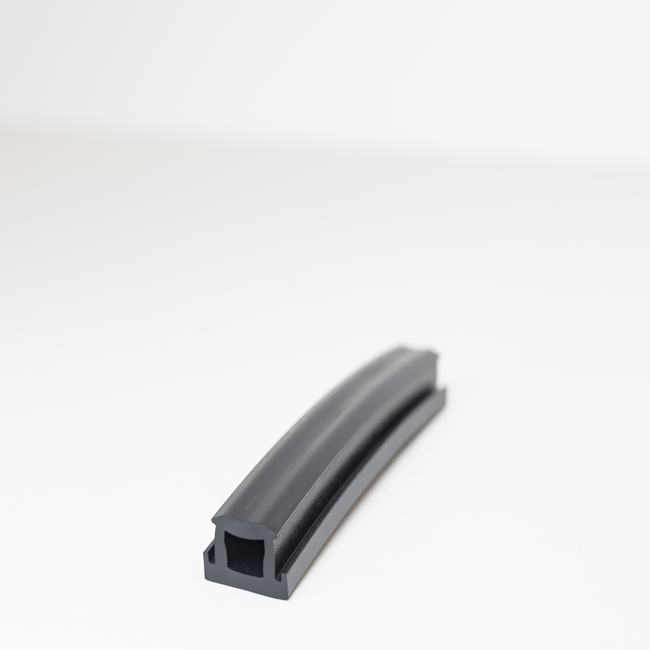Industrial seals are critical components used across various industrial applications to prevent the leakage of fluids, gases, or contaminants, ensuring the efficient and safe operation of machinery, equipment, and processes. These seals come in a wide range of types, materials, and designs to accommodate the specific requirements of different industrial settings. In this comprehensive description, we will delve into the world of industrial seals, exploring their types, functions, materials, installation methods, and the diverse applications they serve.
Types of Industrial Seals:
- Mechanical Seals: Mechanical seals are commonly used in pumps, compressors, and agitators to prevent the leakage of fluids. They consist of a rotating and a stationary face, which are held together with a spring or other sealing mechanisms. They are crucial for applications where high pressures and temperatures are involved.
- O-Rings: O-rings are circular seals made from elastomeric materials like rubber, silicone, or neoprene. They are widely used in hydraulic and pneumatic systems, as well as in a variety of machinery, to create a reliable and cost-effective sealing solution.
- Gaskets: Gaskets are flat seals placed between two mating surfaces to prevent the leakage of fluids or gases. They come in various materials, including rubber, cork, and metal, and are commonly used in pipes, flanges, and engines.
- Rotary Seals: Also known as oil seals or radial shaft seals, these seals are used to prevent the leakage of lubricants or contaminants in rotary equipment such as engines and gearboxes. They are designed to operate in dynamic applications.
- Lip Seals: Lip seals are a type of rotary seal and consist of a flexible lip that contacts the rotating shaft to prevent the ingress of contaminants or the egress of lubricants. They are commonly used in automotive and industrial machinery.
- Piston Seals: Piston seals are designed for hydraulic or pneumatic cylinders and prevent fluid from bypassing the piston as it moves back and forth.
- Diaphragm Seals: Diaphragm seals are used in pressure measurement and control systems to isolate the measuring instrument from the process fluid, protecting it from corrosion or contamination.
- Bearing Seals: These seals protect bearings from contaminants, extending their lifespan and reducing maintenance requirements. They are used in applications such as conveyor systems, motors, and industrial machinery.
Functions of Industrial Seals:
- Leak Prevention: The primary function of industrial seals is to prevent the leakage of fluids, gases, or contaminants. This is crucial for maintaining the integrity and safety of industrial processes.
- Environmental Protection: Seals protect the surrounding environment from the harmful effects of leaked fluids, such as chemicals, pollutants, or hazardous materials.
- Lubrication Retention: In rotary equipment, seals help retain lubricants, ensuring the proper functioning and longevity of machinery and reducing maintenance requirements.
- Contaminant Exclusion: Industrial seals keep out dust, dirt, and other contaminants that can damage equipment or affect product quality.
- Pressure Control: Seals in hydraulic and pneumatic systems play a vital role in controlling pressure and ensuring the efficiency of fluid power applications.
- Temperature Regulation: Some industrial seals are designed to withstand extreme temperatures, making them suitable for high-temperature and cryogenic applications.
Materials and Durability:
Industrial seals are manufactured from a wide range of materials, including elastomers (rubber, silicone, neoprene), plastics (PTFE, nylon), metals (stainless steel, brass), and composites. The choice of material depends on the specific application, considering factors like chemical compatibility, temperature range, and the type of load or pressure the seal will be subjected to.
The durability of industrial seals is paramount, as they must withstand challenging operating conditions, including high pressures, temperatures, and abrasive environments. Quality seals should demonstrate resilience and a long service life while maintaining their sealing effectiveness.
Installation:
Proper installation of industrial seals is critical to their performance. This involves ensuring that the seal is correctly sized, aligned, and positioned to create an effective seal. The use of appropriate lubricants or sealants may also be necessary to enhance sealing performance.
Applications of Industrial Seals:
- Manufacturing: Industrial seals are used in manufacturing equipment, such as pumps, compressors, and conveyors, to prevent fluid leakage and maintain process efficiency.
- Automotive Industry: Seals are employed in engines, transmissions, and suspension systems to prevent the leakage of oil, fuel, and other fluids.
- Oil and Gas Industry: In the oil and gas sector, seals are essential for sealing valves, pumps, and pipelines, ensuring the safe transport and processing of hydrocarbons.
- Aerospace: Aircraft engines, hydraulic systems, and landing gear use specialized seals to operate in extreme conditions and maintain safety and reliability.
- Pharmaceuticals and Food Processing: Hygienic seals are critical in pharmaceutical and food processing equipment to prevent contamination and maintain product quality.
- Chemical Industry: Seals are used to safely contain and transport various chemicals, protecting both workers and the environment from hazardous substances.
- Power Generation: Seals are employed in turbines, generators, and cooling systems to maintain efficiency and prevent fluid leakage.
- Mining and Construction: Heavy machinery and equipment in these industries rely on seals to prevent contamination and extend the life of components.
- Pulp and Paper Industry: Seals are used in paper mills to control the flow of liquids and maintain product quality.
In summary, industrial seals are indispensable components in various industries, serving to prevent leakage, ensure safety, and maintain the efficiency of machinery and processes. The wide array of seal types and materials allows for tailored solutions to address specific challenges, making them a fundamental part of modern industrial operations. Proper selection, installation, and maintenance of these seals are essential for their effective and long-lasting performance.

